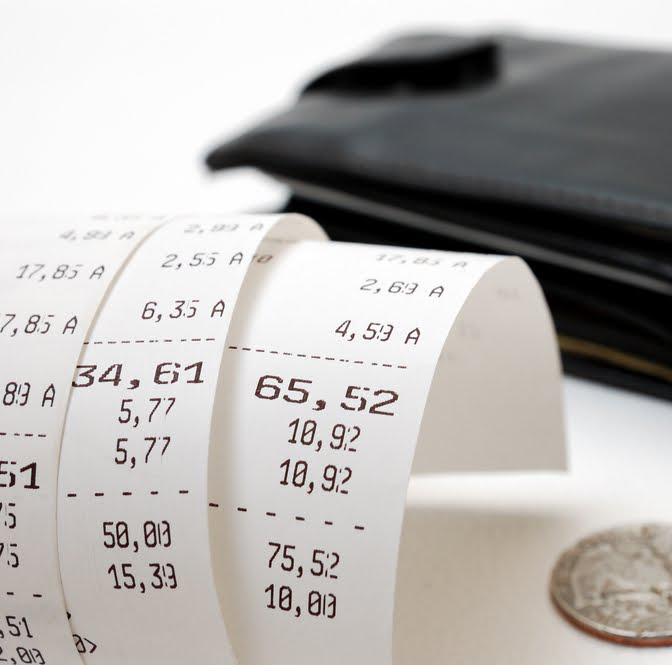Scott McFarlane has always found the idea of accounting and sales tax boring, but that didn't stop him from starting a business to “make sales tax less taxing” for other businesses. That business is Bainbridge Island, WA-based Avalara.
With thousands of sales-tax rules, more than 10,000 tax jurisdictions in the U.S. and the rise of the Internet, figuring out how to tax something in the moment a customer hits the 'buy now' button, is complicated. That is, McFarlane says, unless that company has an automated sales-tax solution included in its software — a solution like AvaTax.
“Orange juice is taxed 300 different ways in the United States,” said McFarlane, the CEO of Avalara. “So you have to know how to calculate the tax on it, and not just one time but in every local jurisdiction around the country.”
What started as a 12-person company on Bainbridge Island in 2004 has grown into a multimillion-dollar company with more than 500 employees in eight offices around the world.
In the last year alone, Avalara has added almost 200 employees. And from 2008-2012, the company's revenue grew 411 percent.
McFarlane attributes the company's success to its quirkiness. With bright-orange walls in the office — even orange toilet paper at one point — a tiki bar in the break room, beer Fridays, and employees walking around in anything from an orange jacket to orange shoes, jeans or glasses, the company has branded itself and nothing about it says “typical office,” McFarlane said.
“I knew I could create a culture around being a business that was slightly quirky in a world that had a perception of being 'stay between the lines' kind of people,” he said. “And the sales-tax concept is not rocket science, but it is something that nobody had ever been able to do before.”
He and his friends did it.
The idea for automating sales-tax calculation came from McFarlane's business partner Rory Rawlings. He, McFarlane and Jared Vogt all live on Bainbridge Island, and the three joined forces in 2003.
Vogt and McFarlane had worked together previously, founding Seattle-based MetaInfo, a software-development firm, before selling it to Check Point Software Technologies in 1998. They teamed up with Rawlings because they knew he had come up with a great idea they could build into something big, McFarlane said.
AvaTax aggregates more than 100,000 sales-tax rules, 10,000 U.S. tax jurisdictions, 150 million addresses and countless other sales-tax regulations around the world — everything from the tax rate of a pair of high heels in Atlanta to a weeklong retail tax holiday in Texas — and attaches them to a company's sales-management system.
Then, the appropriate tax is calculated and applied automatically to a transaction in less than a second — which McFarlane calls the “magic moment.”
Taxware and Vertex, both tax-calculating solutions, were on the market when Avalara was created, but both were limited to larger companies, McFarlane said. Small and midlevel businesses, on the other hand, had to calculate sales tax in accounting systems manually, creating the demand for AvaTax, and the opportunity for the company to grow, he said.
Microsoft Dynamics GP was one of the first companies Avalara wanted to collaborate with. The business-accounting software has always worked with independent software vendors, like Avalara, that complement its own program.
“We know we can never write all the software that customers need,” said Jeff Edwards, director of partner strategy at Microsoft. “Entrepreneurs are critical to what we do.”
Avalara's AvaTax has been certified by Microsoft for Microsoft Dynamics, which Avalara can use to promote its solution. It is basically a Microsoft seal of approval, Edwards said.
An Enterprise Resource Planning, or ERP, system, like Microsoft Dynamics, is business-management software a company can use to store and manage data from every stage of its business. For those businesses that need to calculate sales tax, Edwards said a program like what Avalara offers is very convenient.
Currently, Avalara's tax solution is integrated into hundreds of ERP and e-commerce software systems that serve small to medium-sized businesses across the country. Those include Intuit, which operates TurboTax and QuickBooks, and Intacct, which partners with popular e-commerce websites like GrubHub and Kayak.
Avalara sells its tax solution to companies through a subscription model based on the number of transactions the customer anticipates, which can range from a couple hundred dollars per year to thousands of dollars per year.
Even as Avalara has continued to grow, the headquarters has remained on Bainbridge Island, something the co-founders don't want to change even though growing a company on an island doesn't seem normal, McFarlane said.
But nothing about Avalara is normal. It has been that way since the company's first trade show in June 2004.
When everyone else showed up in a suit and tie with blue poster boards displaying their company's pillars to business, Avalara showed up with a tiki bar, margaritas and bright-orange shirts. Everyone who walked onto the showroom floor saw them and took notice, McFarlane said.
Even though Avalara signed only five companies in its first year of business, everyone in the industry remembered the guys in the orange shirts, and the next year Avalara was signing more and more businesses.
“A culture was born in that moment in time,” McFarlane said.
In 2012, Avalara was approached by Battery Ventures, which has since invested between $20 and $30 million in the company.
“When the fifth CFO in one of our board meetings mentioned they were using Avalara, we started calling the company,” explained Chelsea Stoner, a Battery Ventures partner in the California office. “When you hear of something a couple of times, you realize it is something you should pay attention to.”
Stoner paid attention. She said Battery Ventures realized quickly they should invest after discovering Avalara had little competition. Then, after meeting McFarlane and his team, Battery Ventures grew excited about the culture that comes with Avalara.
“The orangeness definitely played into our decision on the deal itself,” she said.
Avalara could find itself with even more business if Congress passes the Marketplace Fairness Act, which could require online retailers to collect state sales taxes wherever their products are shipped, not just where the company is located.
But for now, McFarlane jokes that the current plan for is simply to continue growing until a Crayola crayon is named after the company: Avalara Orange.
Ideally, McFarlane says he would like the company to be involved in every sales transaction in the world, but if the company can get even a tenth of that, he says they will get a crayon named after them.
“You know you've accomplished something when you have a Crayola crayon named after you,” he said.
———————————–
Copyright 2013 – The Seattle Times
Thanks for reading CPA Practice Advisor!
Subscribe Already registered? Log In
Need more information? Read the FAQs
Tags: Accounting, Automation, Sales Tax




